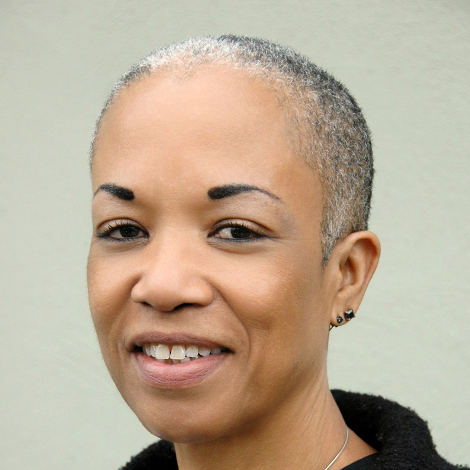The Mid-Atlantic Transition Hub (MATH) recently formed a ‘Spokescouncil of Egalitarian Resilience Networks’ to cultivate a more “leaderful” movement.

Equality – an objective reality, or an intellectual aspiration?
Activists promote, post, and petition for equality. We demand egalitarian treatment of others, and for others. Yet, do our own daily actions indicate that we value each other’s humanity equally? Do the networks and organizations of those who advocate non-hierarchical, egalitarian relationship and governance, in fact reflect those practices? How does the Transition movement square with egalitarian, non-hierarchical practice?
Cultivating a leaderful, egalitarian movement is fundamental to the Transition conversation in the Mid-Atlantic region, from New York to Virginia. A Spokescouncil of Egalitarian Resilience Networks has emerged within the Mid-Atlantic Transition Hub (MATH) constellation. The Spokescouncil is intended to hold the MATH network accountable to the Transition movement’s egalitarian, social permaculture roots.
Networks for which the following practices form part of their operational core are invited to be part of the Spokescouncil. Those networks which: 1) vigilantly listen for and address the emergent need of the whole while honoring innate gifts of individuals,2) value and seek continual system transformation and refinement in service to the whole. The Spokescouncil’s primary goal is to continually support and challenge participants to deepen egalitarian, whole systems thinking and practices within their networks even as we foster social transformation through our work.

Joining the Mid-Atlantic Regional Hub in this journey are friends of Transition from:
- The New England Regional Transition Hub (NERT),
- Permaculture Networks and Circles,
- The Federation of Egalitarian Communities, (FEC),
- New Economy – Timebank Network,
- Ecovillage Network (egalitarian subgroup,)
- Quaker Earthcare Witness (QEW) Networks in New England, NY, NJ, PA, DC, & MD,
- The Mid-Atlantic “Work that Reconnects” (WTR) Network.
The Earth is the Model: Nowhere is the example of decentralized yet interconnected egalitarian “process” more obvious and seamless than in natural ecosystems. Economist David Korten identifies characteristics of nature’s systems as: 1) non-hierarchical, decentralized, cooperative and self-organizing; 2) diverse; 3) self-reliant, 4) locally adapted and, 5) balanced energy flows between individuals and the whole. In an ecosystem, trillions of organisms dance a ballet of interrelated exchange. Each organism contributes to the needs of its neighbors, to the equilibrium, and the resilience of the whole while maintaining its own identity.
MATH’s Mid-Atlantic network structure and operations, now reinforced by the Spokescouncil, are therefore patterned after egalitarian systems processes prevalent in nature. MATH’s assertion is that, thinking and behavior that mimics natural living systems can save us from ourselves. MATH’s approach to Transitioning is to foster a non-hierarchical human ecosystem that maintains a balance between a keen understanding of the climactic, economic and resource depletion triple crisis we face, AND, experiencing the joy of working in supportive community. MATH actively honors the permaculture origin of the Transition movement by cultivating a self-nourishing regional community-of-practice. That community mimics the dispassionate compassion of natural systems toward members, and the earth. That is, we seek to create and model an environment that fosters a non-attached, unconditional response to meet the needs of every part of the system; each of which is equally valued.
The Mid-Atlantic Transition Hub (MATH), a six state consortium of Transition towns and a regional network of self-identified “Transitioners,” cultivates a shared mindset shift to the new climate change, energy, and economic, “normal.” The MATH network is comprised of a:
>Stewardship Circle: Twelve, Specialized Environmentalist Transition Trailblazers
>MATH Council: Transitioners’ Best Practices Sharing Group representing six states
> Spokescouncil of Egalitarian Resilience Networks
>Extensive network of “non-affiliated Transitioner friends.”
Transitioning happens at interconnected, hyper-local, local, water/foodshed, state, regional, national and international scales. MATH’s mission is to link hundreds of local Transition nodes throughout the Mid-Atlantic megacity corridor in a vital, living, interconnected web; providing an ongoing flow of support and communication among all of these levels. MATH’s objectives and approaches evolve to directly reflect the emergent resilience-building needs of the densely populated, highly diverse chain of metropolitan areas in the Mid-Atlantic Region.

This Revolution Will Not be Centralized: Leaderful Egalitarian Movements If we are to build a leaderful movement we’d be wise to expand narrow, conventional definitions of leadership. We need to: 1) detach our understanding of leadership from an outworn hierarchical notion of a charismatic “personality,” and focus on leadership occurring as a practice, and as conscious, collaborative social interaction, 2) broaden our ideas about what constitutes a leader in order to appreciate a spectrum of innate talents in our colleagues. Leadership in this day and age is less about traits or behaviors of particular individuals, and more about the cooperative effort of participants who choose through their own ground rules to achieve a particular outcome.
As Purvi Shah, Director of the Center for Constitutional Rights said of today’s social transformation movements, “This moment and movement is producing high-impact, low ego leaders in many sectors, all focused on a facilitative style of leadership, where sustainability and outcomes are more important than shine or visibility.”
Egalitarian, facilitative leadership is not about what one person thinks or does, and more about what people may accomplish together. How leadership emerges, unfolds progressively over time in accordance with the need of the hour. Supporting egalitarian participatory leadership will require a fundamental shift of lenses for those of us conditioned in the hyper-individualistic, stratified culture that drives the American system. Power-and-control, competitive and hierarchical habits in group work are hard to kick.
Natural living-systems on the other hand, demonstrate no need for a centralized control structure. The power of a living-system is derived not from individual participants but from how participants are organized, and the interchange among them. So while the contributions of individuals are essential, the true power of systems emerges from their collective interdependence.
The Mid-Atlantic Transition Hub catalyzed by the Spokescouncil tasks its network to vigilantly self-observe and commit to ongoing self-transformation in service of the whole. The Spokescouncil will demonstrate that leadership is generated through its activity rather than through the traits and heroics of any individual actor. Vigilant conscious practice of egalitarianism can head off seductive “power-&-control-think” at the pass. Full self-expression and listening deeply for emerging needs and courses of action give free reign to the creative force of the collective genius.
Managing the energy and information flow among individuals and network circles to allow for the emergence of the new is MATH’s growing edge. This occurs seamlessly in nature where each entity maintains a balanced flow of energy within itself and in continuous exchange with its neighbors. However, this type of interchange challenges minds that are conditioned to focus on disconnection, separation and competition.
The Spokescouncil of Egalitarian Resilience Networks emerged out of a shared desire among a group of Mid-Atlantic Transitioners and activists to move beyond advocating for equality, toward practicing egalitarianism. We are committing to ongoing observation of how we treat each other, and reorient our network compasses to deepen true egalitarian community-building.
Transitioners acknowledge that the movement is an evolving experiment. We don’t have all of the answers. We aren’t intent on finding perfect solutions, but like living-systems we seek experimental pathways that meet the need of the hour and can be refined over time. When something doesn’t work, Transitioners embrace new behaviors and adapt to emergent circumstances. Each time we shift course, the complexity of our relationships is deepened and we become more adaptable—more resilient.






